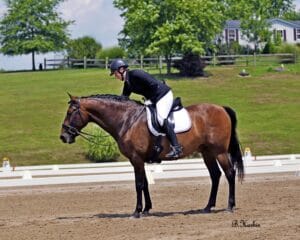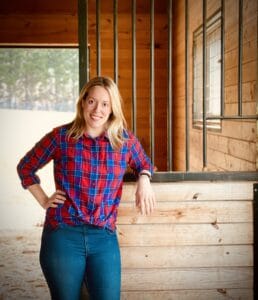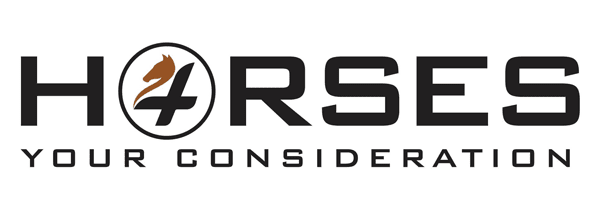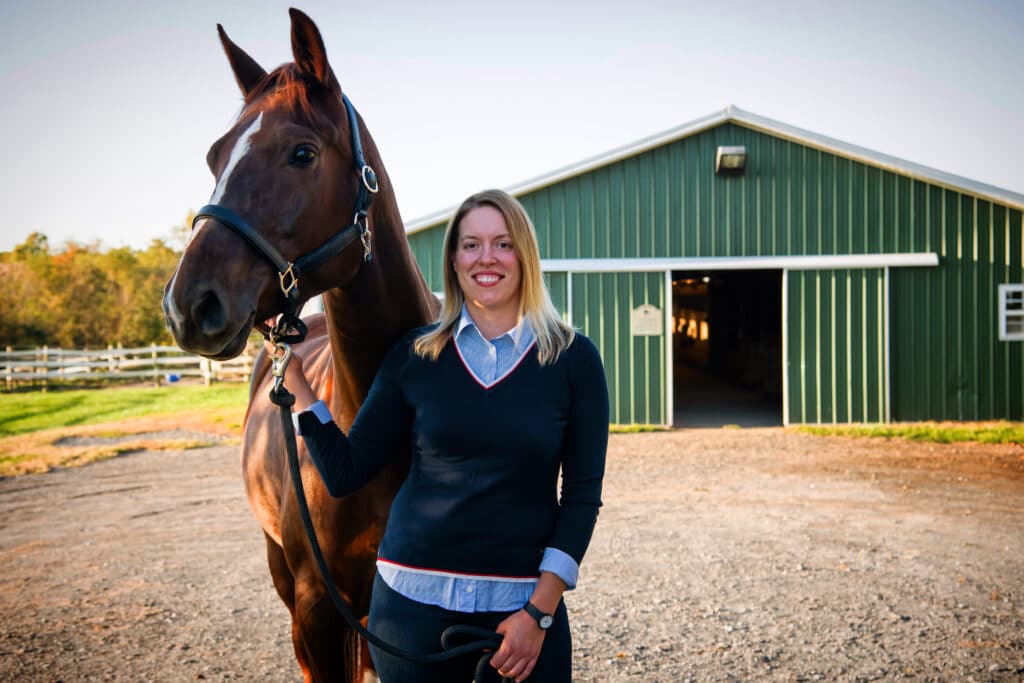Tanja and her 5 yr old Dutch Warmblood, Kela
Photo: Lotus Photography
1)How/when did you start riding?
I grew up in a small town in Germany and had my first riding lesson at the age of 7. One of the neighbor’s kids took lessons at a horse farm close to my parent’s house and asked me to join. It was a small farm with about 8 lesson horses and I immediately fell in love with the barn, the horses and riding. After a great deal of persuasion my parents agreed to invest in a riding helmet, used breeches and rubber paddock boots and signed me up for regular lessons. I spent a lot of time out there, riding school horses, helping with barn chores and attending summer riding camps. I absolutely treasure these memories. At the age of 14, I convinced my parents to half-lease a horse, which was an Oldenburger gelding named “Noblesse Oblige”. He was such a patient and sweet horse. I started taking dressage lessons with him, we entered into our first local dressage shows and my passion for riding and taking care of horses just build up from there. Now, two decades later, being at the barn spending time with horses is still my happy place.
2)Give us the Day in the Life of Tanja
I’m definitely an early bird and always feel very productive in the morning. I get up before 6am and start answering emails and work on ongoing appraisals or legal cases before heading out to the barn.
I am the barn manager for Moon Rising Farm, a long-established private horse boarding facility that provides full service for about 28 horses, just outside of Washington, DC. At 8am I start the morning feed. The horses come in from the field to their stalls for breakfast and I check everyone for injuries, lost shoes, lameness or other signs and symptoms of sickness or discomfort while they are eating. After that some of the horses are being exercised, see the farrier, vet, chiropractor or they can just go back out into their fields, depending on what their schedule for the day is. After lunch I have a lesson with my trainer and then attend to other farm work like putting out round bales, dragging the indoor/outdoor ring, general farm maintenance or exercise remaining horses before I start with the evening feed.
Depending on how busy my farm day is, I’m usually back home around 6pm, shower, eat dinner and continue working on my appraisal or legal cases.

3)How did you get into the Equine Appraisal Business? Give us some of your background.
I have been involved with horses my whole life and turned that passion into a full-time position as barn manager a few years ago. However, my professional career actually started in the legal industry. For many years I worked at international law firms, first in Germany and then here in the US. I started as Trainee, became a Legal Secretary, a Paralegal and then earned my Bachelor of Law degree.
Having extensive work experience in both, the equine and legal industry, I was looking for a way to combine the two. Granted, that seems like a stretch at first but then I came across an article about equine appraisers and started looking into that profession. After reading about the requirements and education necessary to become certified as appraiser, it became clear to me pretty quickly that this was going to be a long-term commitment. Nevertheless, the more I read about it and talked to other equine appraisers, the more I felt like this was something I really wanted to do. Now I am a certified equine appraiser and member of the American Society of Equine Appraiser and have established my own equine appraisal company, Sigma Equine LLC.
4)Tell us some reasons for needing an Equine Appraisal?
There is a variety of different reasons for someone needing the current market value of a horse determined through an equine appraisal. My clients can be an equine insurance carrier, who needs the appraisal to process an insurance claim. It can also be a horse buyer, who wants to verify the value of the horse they are looking to buy. On the other hand, it can also be a horse seller, using the appraisal to determine the appropriate asking price. In other cases, a client wants to donate their horse to an equestrian collage and the IRS requires an appraisal from a certified equine appraiser and of course there are always lawsuits.
5)You also have this other part of your business that seems really interesting, Expert Witness. Explain to everyone what this is. What this is used for.
While I was doing my research and reached out to other equine appraisers, I met Bridget Brandon. She is not only a certified senior appraiser and has served as expert witness on multiple high-profile cases but she is also the president of The Equine Expert LLC, a multi-discipline expert and consulting firm, which I am proud to be a member of. With my expertise in barn management and horse behavior, I support attorneys as consulting and testifying expert.
What does that mean? An expert witness is someone who is allowed to testify in court due to their specific knowledge and proficiency in a particular field, when it is relevant to the case. That means I get hired when the case involves a horse, especially when it concerns barn management or horse behavior. My job as expert witness is to educate and explain things like common horse behavior, industry standards about horse care or the safe handling of horses, etc., to the attorneys, judge and jury so they can better understand what happened and evaluate the case properly.
Imaging being a judge trying to evaluate a case where a horse broke loose and injured someone while bolting across the property, without knowing important details like: Should a unbroke young stallion be handled differently than a 30-year-old lesson pony? Is it normal to just fling a lead rope over the neck of a horse to bring them in from the field? What in the world are cross ties and what are they being used for? All the specifics might seem obvious to a horse person, however, not very much to someone who never had any experience with our furry four-legged friends. Of course, the questions or situations to testify about are often more complex than these examples but you get the idea. Expert witnesses get often hired before a case goes to court to counsel the attorney, so they understand the situation and can prepare their case.
I very much enjoy my work as equine expert and my background in the legal industry definitely comes in handy, as I am familiar with the process of legal cases and terminology.

6)Do you work on imported horses for litigation?
If such a case came across, I would definitely take it. Until now, I have appraised the value of an imported horse but that was for a donation and outside of a legal dispute.
7)Have you ever worked on an animal cruelty case?
So far, I have not. I have worked on a case where a horse was leased out and the lessee did not provide the agreed upon care for the horse, resulting in the horse’s health declining and leaving the horse with a permanent health conditions that need long-term care.
Thanks Tanja for all that information. She can be reached at 571-345-3486 or tanja@sigma-equine.com Her website: http://www.sigma-equine.com





